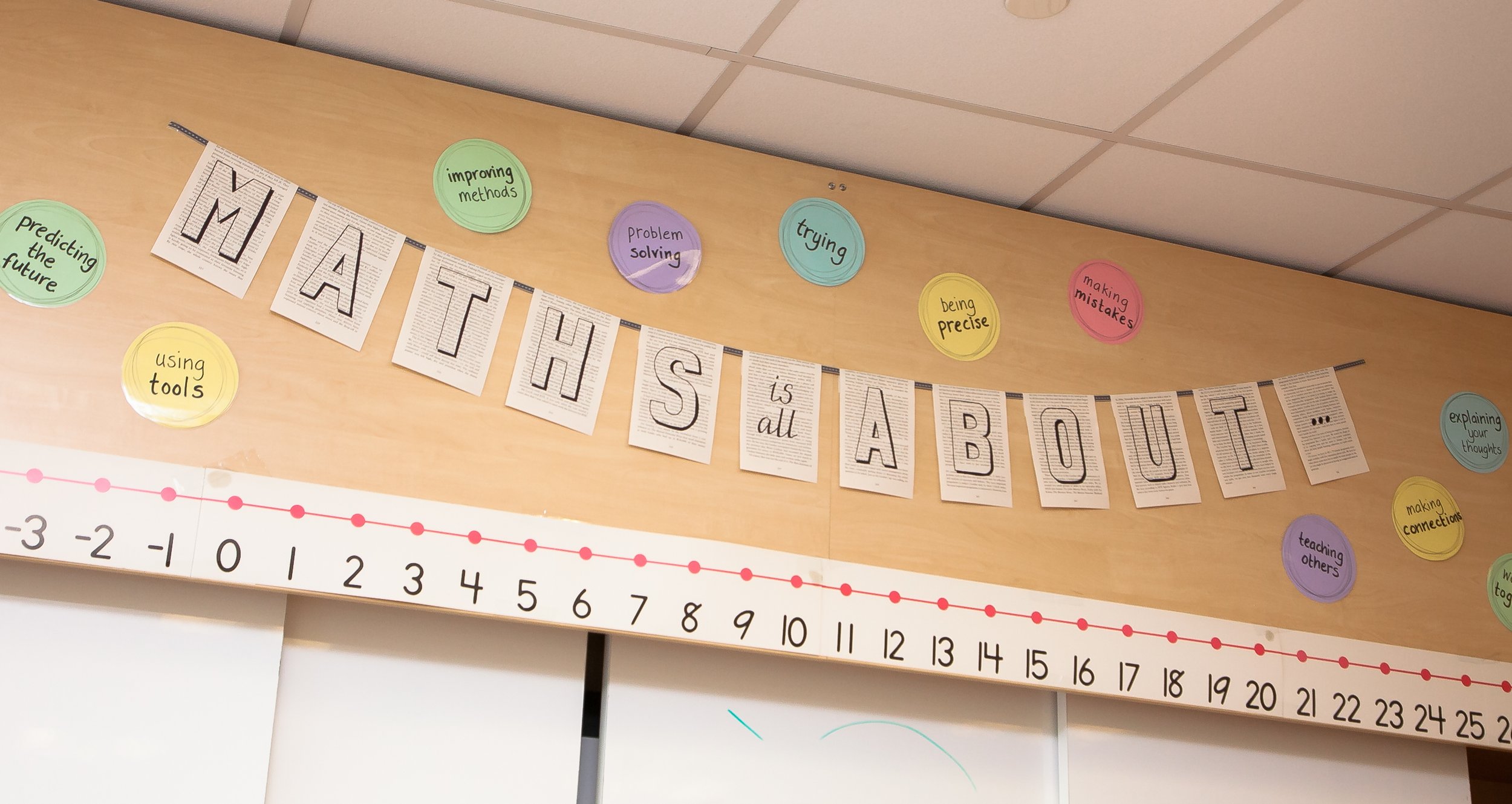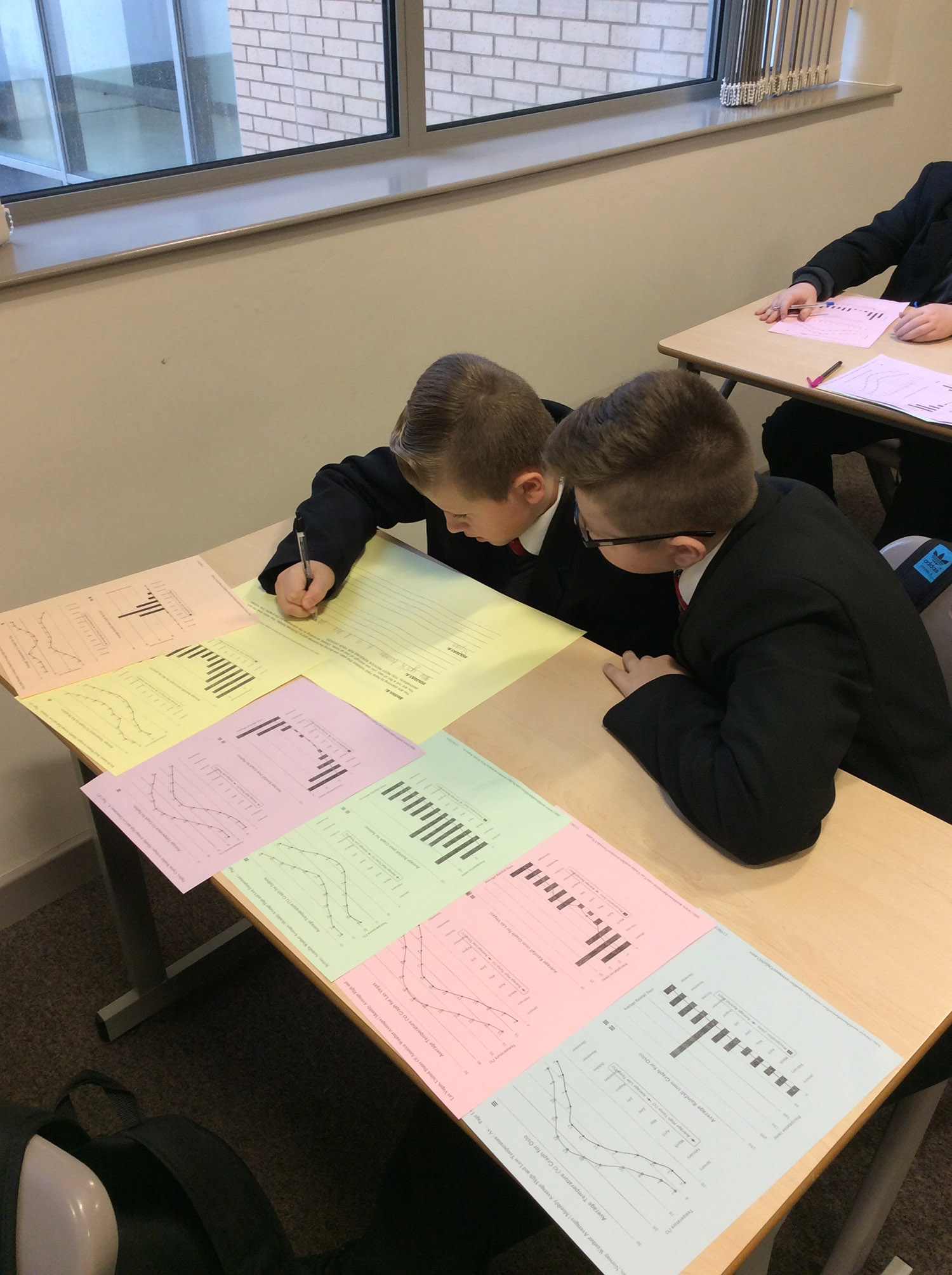Mathematics
Aims
To study a wide range of mathematical topics
To enter pupils in public examinations at an appropriate tier to attain the highest grade of which they are capable
To develop confidence in using a range of mathematical techniques necessary in everyday life
Staff
Mrs Hanna
Miss Corrigan
Miss Gillis
Mrs McCracken
Mr Mathers
Mr Smith
Mrs Weir
Ms Young
Key Stage 3
In Years 8 - 10, pupils will follow the same curriculum which provides opportunities to stretch more able pupils and support those who are experiencing difficulties. Pupils will have the opportunity to develop their knowledge and understanding of:
Number
Algebra
Shape, space and measures
Handling data
Financial issues
Application of mathematical skills to real life and work situations
These should be developed by demonstrating:
Creative thinking
Mental mathematics skills and competence in pen and paper methods
Confidence in the use of mathematical language and notation
Practical skills using technology
Key Stage 4
All pupils study the CCEA GCSE Mathematics course.
Click here for the Maths specification.
This specification aims to –
· Develop the young person as an individual
· Develop the young person as a contributor to society
· Develop the young person as a contributor to the economy and environment
· Develop fluent knowledge, skills and understanding of mathematical methods and concepts
· Acquire, select and apply mathematical techniques to solve problems
· Reason mathematically, make deductions and inferences and draw conclusions
· Comprehend, interpret and communicate mathematical information in a variety of forms appropriate to the information and context
At the end of Year 11 pupils will be entered for Unit M2, M3 or M4 (one paper worth 45% of the total marks for the qualification) depending on the target grade discussed with, and agreed by, their class teacher.
In January of Year 12 pupils will be entered for Unit M6, M7 or M8 (two papers, calculator and non-calculator, worth 55% of the total marks for the qualification) depending on their result from the previous unit.
Some pupils choose, as an option, to study GCSE Further Mathematics.
Click here for the Further Maths specification.
This specification aims to –
· Develop further their mathematical knowledge, skills and understanding
· Select and apply mathematical techniques and methods to mathematical, everyday and real-world situations
· Reason mathematically, interpret and communicate mathematical information, make deductions and inferences, and draw conclusions
· Extend their base in mathematics from which they can progress to subjects containing a significant requirement in mathematics beyond Higher Tier GCSE Mathematics
· Design and develop mathematical models that allow them to use problem-solving strategies and apply a broader range of mathematics to a variety of situations
All pupils will enter Unit 1 (Pure Mathematics – 2 hour paper worth 50% of the total award), Unit 2 (Mechanics – 1 hour paper worth 25% of the total award) and Unit 3 (Statistics – 1 hour paper worth 25% of the total award)
Post 16
All pupils will follow the CCEA GCE Mathematics specification - click here for specification.
The full GCE award is based on marks from the AS (40%) and the A2 (60%).
The aims of the specification are –
· Understand coherence and progression in mathematics and how different areas of mathematics are connected
· Apply mathematics in other fields of study and be aware of the relevance of mathematics to the world of work and to situations in society in general
· Reason logically and recognise incorrect reasoning
· Use their mathematical skills and techniques to solve challenging problems that require them to decide on the solution strategy
In Year 13 pupils will sit –
AS1 Pure Mathematics 1 hour 45 mins 60% of AS award 24% of A2 award
AS2 Applied Mathematics 1 hour 15 mins 40% of AS award 16% of A2 award
In Year 14 pupils will sit –
A21 Pure Mathematics 2 hours 30 mins 36% of A2 award
A22 Applied Mathematics 1 hour 30 mins 24% of A2 award
Skills Developed
Creative thinking
Mental mathematics skills and competence in pen and paper methods
Confidence in the use of mathematical language and notation
Practical skills using technology
Careers
Book keeping/accountancy
Banking
Retail/retail management
Teaching
Engineering
Working with computers
Insurance
Sales and/or marketing


